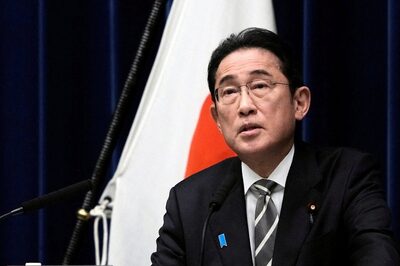
views
BANGALORE:The Indian Institute of Foreign Trade (IIFT) has conceptualised an innovative training programme, funded by the Department of Agriculture and Cooperation (DAC), Ministry of Agriculture, aimed at providing an in-depth understanding of agricultural business environment and evolve efficient strategies for enhancing the competitiveness of this sector at each level.Director of IIFT K T Chacko, IAS (Retd), said, “During the recent years, the framework of international trade has undergone significant changes due to formation of World Trade Organization (WTO) in all sectors, including agriculture. Hence, training at each level becomes important to enhance the efficiency of players throughout the value chain to boost competitiveness of agricultural exports from India.” 3-phased interactions“The unique pedagogical feature of the programme is the extensive three-phased interactions by training the masterminds selected from various training institutes under the DAC, the State Department of Agriculture, Rural Development and cooperatives, State Agriculture Universities (SAUs), the Indian Council of Agricultural Research (ICAR) and Export Promotion Agencies, which, in turn, will spread the knowledge across the country,” said chairperson and project leader, IIFT, Prof Rakesh Mohan Joshi. The phase I will have three programmes conducted in a span of next six months.It is believed that the scope of these programmes will include issues in agriculture marketing, finance, price risk management, supply chain management, IT applications in agriculture, emerging SPS-TBT issues, quality rejections, impact of WTO agreements and various trade agreements recently signed by India.Special focusJoint Secretary (Trade), Ministry of Agriculture and Cooperation, Subhash Garg said, “This programme on capacity building of statelevel institutions in trade competitiveness issues with special focus on WTO and practical aspects of exportsimports for agriculture commodities will help tremendously all stakeholders - master trainers, officials, field functionaries, traders and service providers at regional and state levels across the country.”




















Comments
0 comment